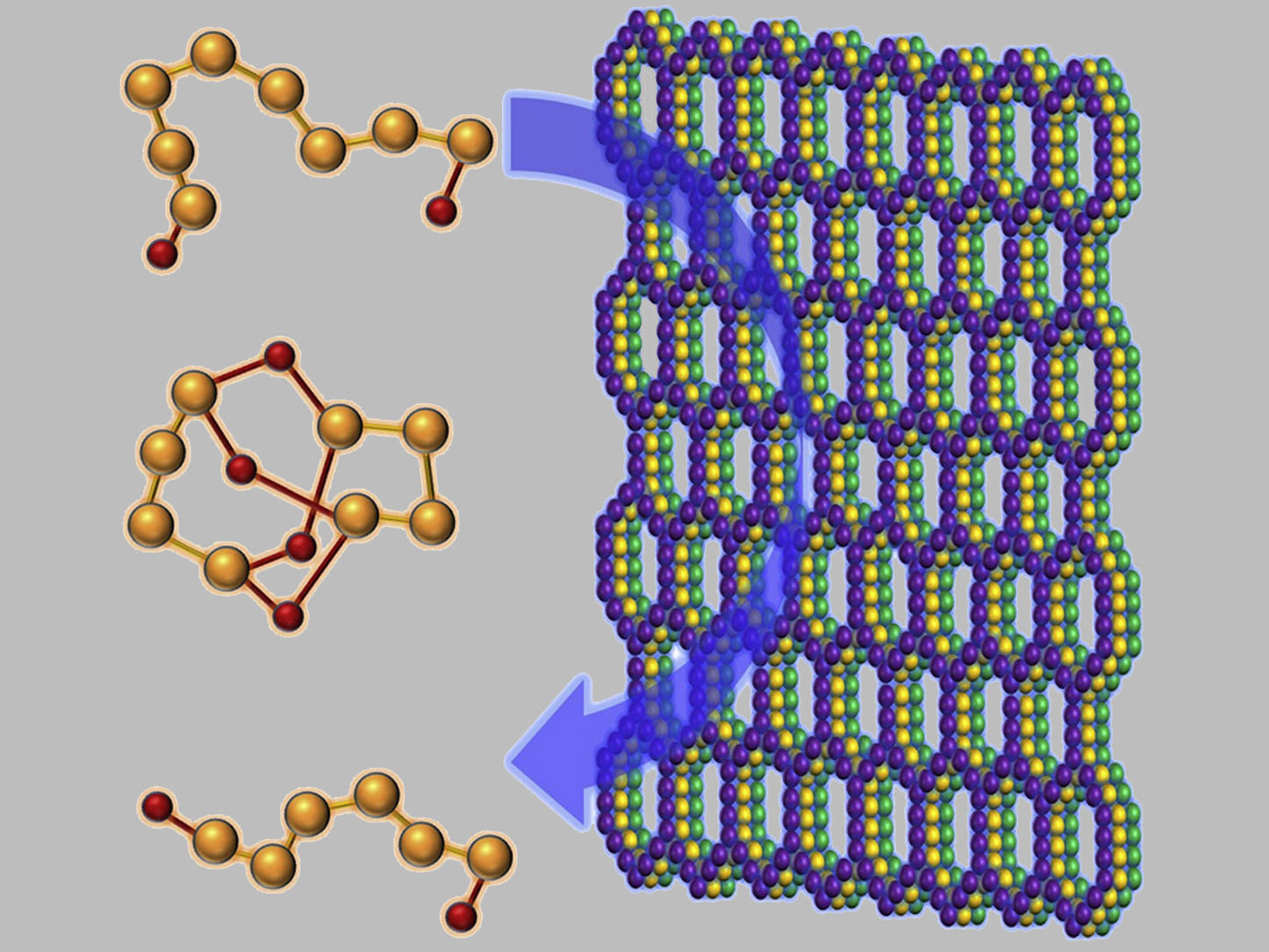
Intuitive materials design at UT is based on fundamental chemistry and physics concepts with an intimate coupling of experiments and theory. A robust back-and-forth dialogue between experimentalists and theorists allows for predictive capability and an in-depth model-based understanding of new phenomena that is then confirmed experimentally.
Computational Models at Different Length Scales
- Atomistic first-principles modeling
- Quantum mechanical models
- Transition state and electronic structure models
- Molecular simulations
Specific Applications of Methods
- Prediction of contributing factors to capacitance/voltage profiles
- Ion diffusion mechanisms
- Understanding of surface chemistry and solid-solid and solid-liquid interfaces
- Molecular simulations of polymer physics
- Design of battery materials (cathodes, anodes, electrolytes, polymer electrolytes) based on fundamental understanding
- Materials discovery
Faculty in This Area
Venkat Ganesan
Graeme Henkelman
Gyeong Hwang
Yuanyue Liu
Donald Siegel
Recent Research Projects
Relationship between Ionic Conductivity, Glass Transition Temperature, and Dielectric Constant in Poly(vinyl ether) Lithium Electrolytes
Nathaniel Lynd and Venkat Ganesan
ACS Macro Letters
Disrupting Sodium Ordering and Phase Transitions in a Layered Oxide Cathode
Graeme Henkelman and Hadi Khani
Journal of The Electrochemical Society
Influence of Polarizability on the Structure, Dynamic Characteristics, and Ion-Transport Mechanisms
Venkat Ganesan
Journal of Physical Chemistry B
Implications of in situ Chalcogen Substitutions in Polysulfides for Rechargeable Batteries
Yuanyue Liu and Arumugam Manthiram
Energy & Environmental Science
Low-temperature Activation of Solid-State Lithium-ion Transport for Polymer Electrolytes
Gyeong Hwang
Journal of Power Sources
Ion Migration Mechanisms in a Sodium Sulfide Solid Electrolyte
Donald Siegel
Chemistry of Materials
Exploring the Synthesis of Alkali Metal Anti-perovskites
Donald Siegel
Chemistry of Materials
Molybdenum Carbide Electrocatalyst for Rapid Kinetics in Sodium Metal – Sulfur Batteries
Graeme Henkelman and David Mitlin
Advanced Materials